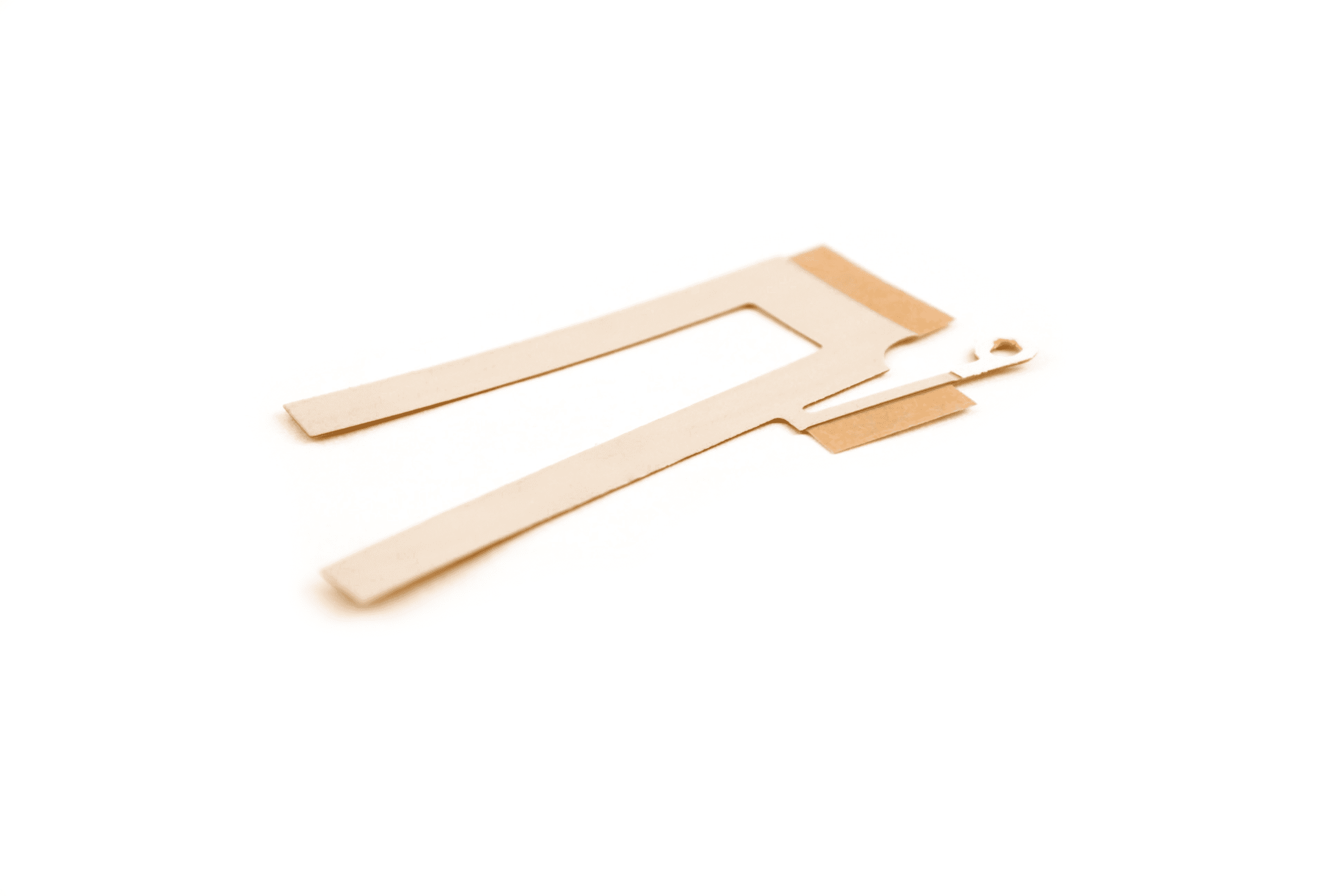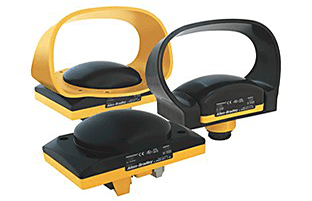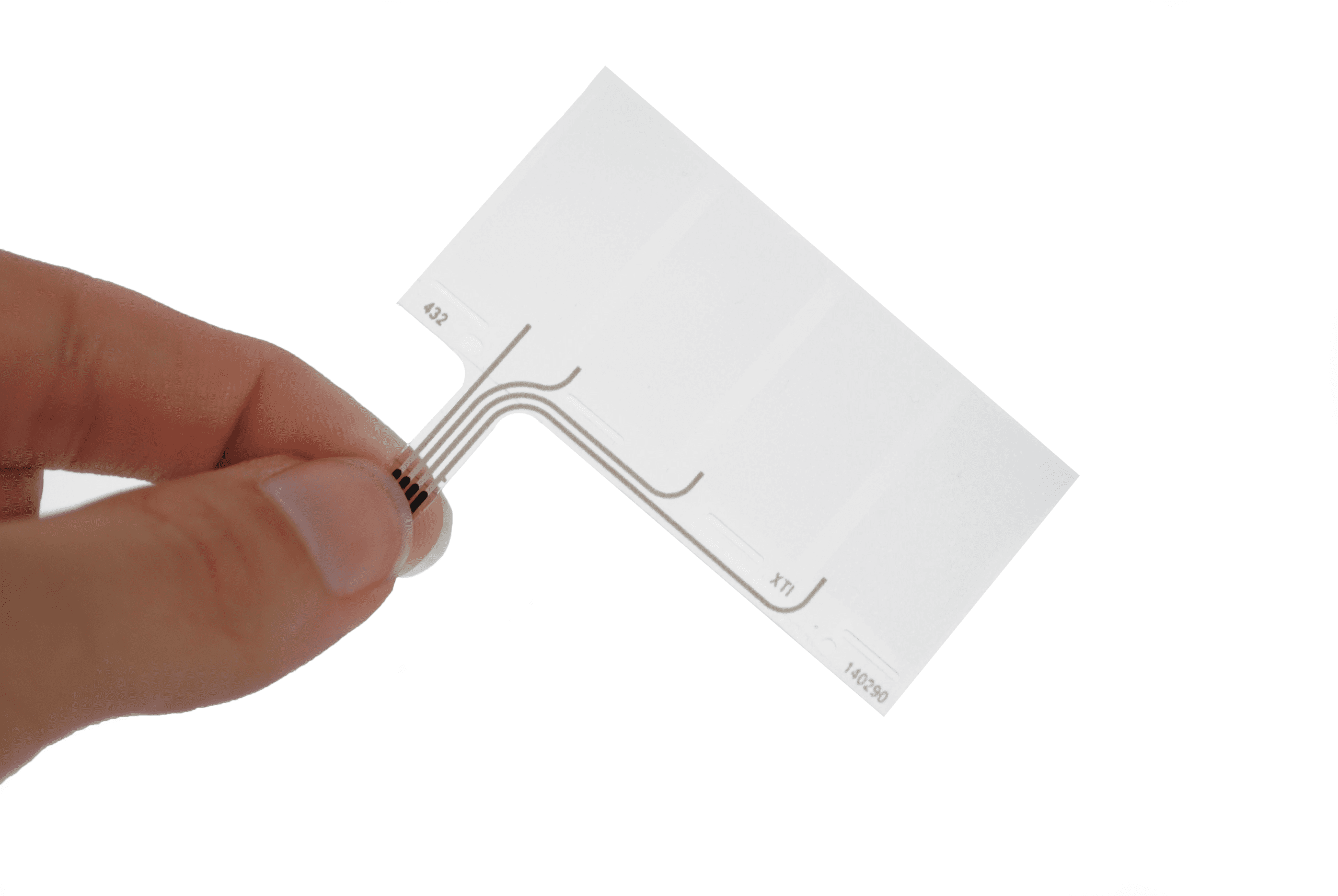Capacitive sensors are just that – a sensor that senses a change in capacitance. According to Wikipedia, capacitive sensing is a technology that can detect and measure anything that is conductive or has a dielectric different from air. Touch screens detect changes in capacitance that occurs when you touch the screen; they are made with transparent materials to create a crystal clear sensor over a display.
Sometimes you want cap sensing on your device, but not necessarily a touch screen; this can be done, most commonly, on opaque devices or backlit icons. Different technologies can get you there without paying for features (ex: transparency) that you may not need.

Opaque:
Printed silver can function as a capacitor. No display? No backlight? Keep it simple with silver PCAP sensors. Screen printed with conductive silver ink and laminated to pressure sensitive adhesive for final assembly.

Xymox has created a printed silver circuit that functions as a dead-man switch for a machinery manufacturer. The sensor is essentially a simple piece of circuitry, on the underside of a plastic palm safety button, to detect the presence of an operator. This is a very cost effective way to sense touch

Backlit:
PEDOT can be printed onto polyester. While some may say these printed cap sensors look transparent, we say they are translucent – you wouldn’t like them over a high resolution display. However, there are some great applications for backlit buttons that require touch sensing activation. For this type of system, clear conductive material is printed and placed over a backlight, the resulting icon is perfectly touch sensitive. This technology has been widely successful in automotive applications & appliance applications – how can this work for you?
We all like touch-sensitive surfaces. How can you leverage the incredibly flexible technology to add this feature to your industrial or medical device?
{{cta(‘2de81b49-ac93-44f9-8124-72b9f94414ae’)}}
